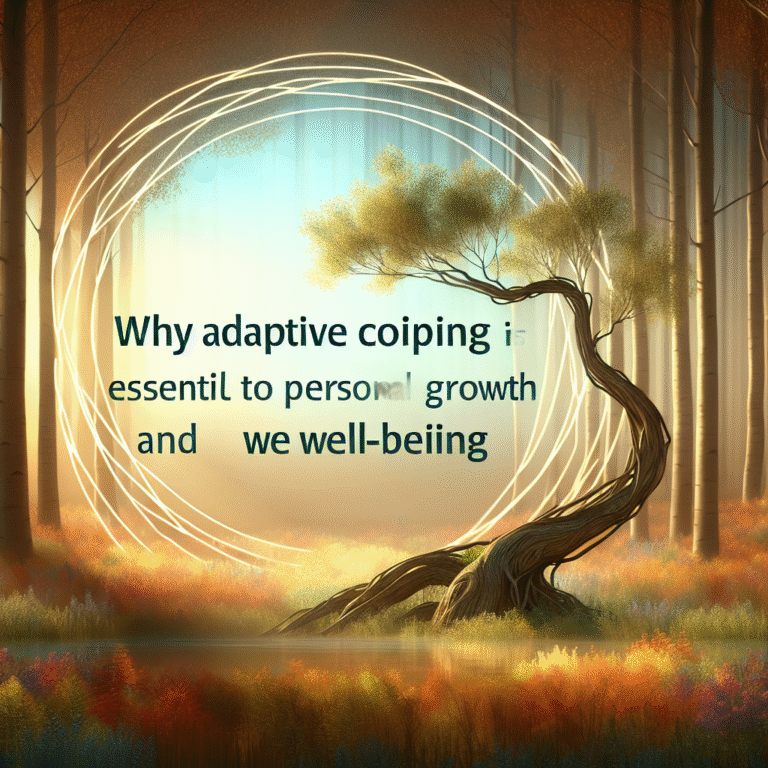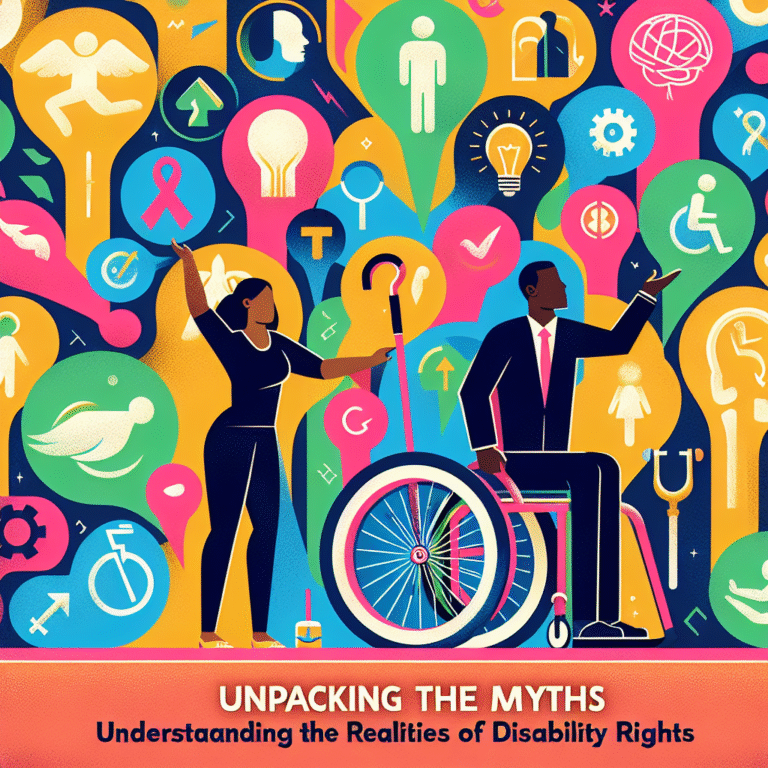
Introduction
Imagine waking up each day not with the weight of frustration and discomfort due to chronic illness but with a renewed sense of peace and control over your life. This is the transformative power of mindfulness. In our increasingly fast-paced, stress-filled world, practicing mindfulness offers a beacon of hope for those battling chronic conditions. Research has shown that mindfulness can significantly reduce symptoms, stress, and improve overall well-being for individuals managing chronic illnesses. In this article, we will explore mindfulness and chronic illness: techniques for better management, diving into evidence-based methods, real-life case studies, and actionable insights that can inspire a shift toward a more mindful lifestyle.
The Intersection of Mindfulness and Chronic Illness
Chronic illness affects millions of people globally, often leading to not just physical limitations but also emotional distress. Conditions such as arthritis, diabetes, and fibromyalgia can create a cycle of pain, anxiety, and depression, making daily management feel overwhelming. Here, mindfulness emerges as a valuable ally. By enhancing self-awareness and fostering a non-judgmental attitude towards one’s experience, mindfulness provides tools to break this cycle.
What is Mindfulness?
At its core, mindfulness is the practice of being fully present in the moment. It is about observing thoughts, emotions, and physical sensations without judgment. This practice encourages individuals to appreciate life as it unfolds, providing a counterbalance to the stress of chronic illness.
Why Mindfulness Matters for Chronic Illness
Mindfulness and chronic illness: techniques for better management revolve around the idea of acceptance. The chronic pain associated with many illnesses can lead to feelings of helplessness. Mindfulness helps individuals accept their situation, reducing anxiety and fostering a proactive approach to management. Research supports this connection; studies have indicated that mindfulness can lead to reduced pain perception, decreased emotional distress, and improved quality of life.
Techniques for Mindful Living
Let’s delve into the specific mindfulness techniques that individuals with chronic illness can employ for better management.
1. Meditation
Mindful Meditation
Meditation is a cornerstone of mindfulness practice. Setting aside just 10-15 minutes daily for meditation can reap profound benefits.
- Technique: Body Scan Meditation
Begin by lying down and focussing on each part of your body, starting at the tips of your toes and slowly moving upwards. Acknowledge any sensations you feel, whether pain or relief, without judgment.
Case Study: Sarah, a 34-year-old with fibromyalgia, integrated a daily body scan into her routine. Over six weeks, she reported a noticeable decrease in her pain levels and an increase in her ability to cope with daily stressors.
2. Mindful Breathing
The Power of Breath
Mindful breathing helps ground individuals in the present moment. It can be especially beneficial during times of high stress or flare-ups.
- Technique: 4-7-8 Breathing
Inhale through your nose for a count of four, hold for seven, and exhale through your mouth for eight. Repeat for several cycles.
Analysis: This technique promotes relaxation and activates the parasympathetic nervous system, countering stress.
3. Gentle Movement and Mindful Walking
Yoga and Tai Chi
These practices emphasize slow movements combined with breath awareness. They can enhance flexibility and muscle strength while providing mindfulness benefits.
- Walking Exercise
Try walking slowly in a quiet area, paying attention to each step. Feel the ground beneath your feet and notice the surrounding environment.
Case Study: John, a 60-year-old with arthritis, found mindful walking to be his sanctuary. The practice not only alleviated his physical discomfort but also became a daily source of joy.
4. Mindful Eating
Eating with Intention
Eating is a sensory experience that can be enhanced by practicing mindfulness. This technique can help individuals make healthier food choices and enjoy meals more fully.
- Technique: Focus on the colors, textures, and flavors of each bite. Chew slowly, savoring your food, and observe how it makes you feel.
Analysis: Mindful eating has been shown to improve digestion and foster a more positive relationship with food, essential for managing conditions like diabetes.
5. Journaling
Expressive Writing
Journaling can be a powerful mindfulness tool, allowing individuals to process their experiences and emotions. Writing about daily challenges and victories creates a space for reflection.
- Technique: Dedicate a few minutes each day to write without filtering your thoughts. Focus on emotions, sensations, and gratitude.
Case Study: Lisa, living with Crohn’s disease, found journaling to be cathartic. Her written reflections helped identify triggers and celebrate her progress.
Monitoring Progress and Benefits
To fully appreciate the impact of mindfulness and chronic illness: techniques for better management, it’s crucial to monitor your journey.
Benefits of Mindfulness in Chronic Illness Management
| Benefit | Description |
|---|---|
| Reduced Pain | Mindfulness techniques can alter pain perception. |
| Decreased Anxiety | Acceptance of one’s situation leads to lower anxiety levels. |
| Improved Sleep Quality | Mindfulness promotes a relaxed state, enhancing sleep. |
| Enhanced Emotional Resilience | It builds a stronger emotional foundation to cope with challenges. |
| Greater Sense of Control | Mindfulness empowers individuals, fostering a proactive mindset. |
Overcoming Challenges in Mindfulness Practice
Implementing mindfulness techniques can present hurdles. Here are some common challenges and solutions:
1. Difficulty Concentrating
Solution: Start with shorter sessions (3-5 minutes) and gradually increase the duration as your focus improves.
2. Skepticism About Benefits
Solution: Engage in community groups or attend workshops to witness how others benefit from mindfulness.
3. Pain Distraction
Solution: Focus on the breath as an anchor during pain flare-ups, acknowledging discomfort without attaching negative emotions.
4. Lack of Time
Solution: Incorporate mindfulness into daily routines, such as during commutes or while waiting for appointments.
5. Emotional Overwhelm
Solution: Incorporate self-compassion practices into your routine, reassuring yourself that it’s okay to have difficult emotions.
Conclusion
Incorporating mindfulness into the management of chronic illness is not merely a trend; it is a lifestyle approach that promotes well-being and resilience. From meditation and mindful eating to gentle movement, the techniques covered in this article provide multiple pathways for individuals to regain agency over their lives. By cultivating mindfulness, individuals can transform their relationship with their illness, lessen suffering, and enhance their overall quality of life.
As you embark on this journey of mindfulness and chronic illness: techniques for better management, remember that every step counts. Celebrate small victories, and give yourself grace during setbacks. Empower yourself to take charge of your health through mindfulness, and inspire those around you to join you on this transformative path.
FAQs
1. What is mindfulness?
Mindfulness is the practice of being present and fully engaging with the moment, allowing individuals to experience their thoughts and feelings without judgment.
2. How can mindfulness help with chronic pain?
Mindfulness can help alter pain perception and reduce emotional distress by encouraging acceptance and awareness.
3. Can mindfulness be practiced anywhere?
Absolutely! Mindfulness techniques can be incorporated into daily activities, including eating, walking, or even during mundane tasks.
4. How long should I practice mindfulness for it to be effective?
Even short sessions of 5-10 minutes daily can make a significant difference. Consistency is key.
5. What if I find it hard to meditate?
If meditation feels challenging, try other forms of mindfulness practices such as body scan, mindful breathing, or gentle movement, which may feel more accessible.
In summary, the intersection of mindfulness and chronic illness offers invaluable techniques for better management. Embrace these practices, and you may discover a newfound sense of peace amidst the challenges of chronic illness.
















